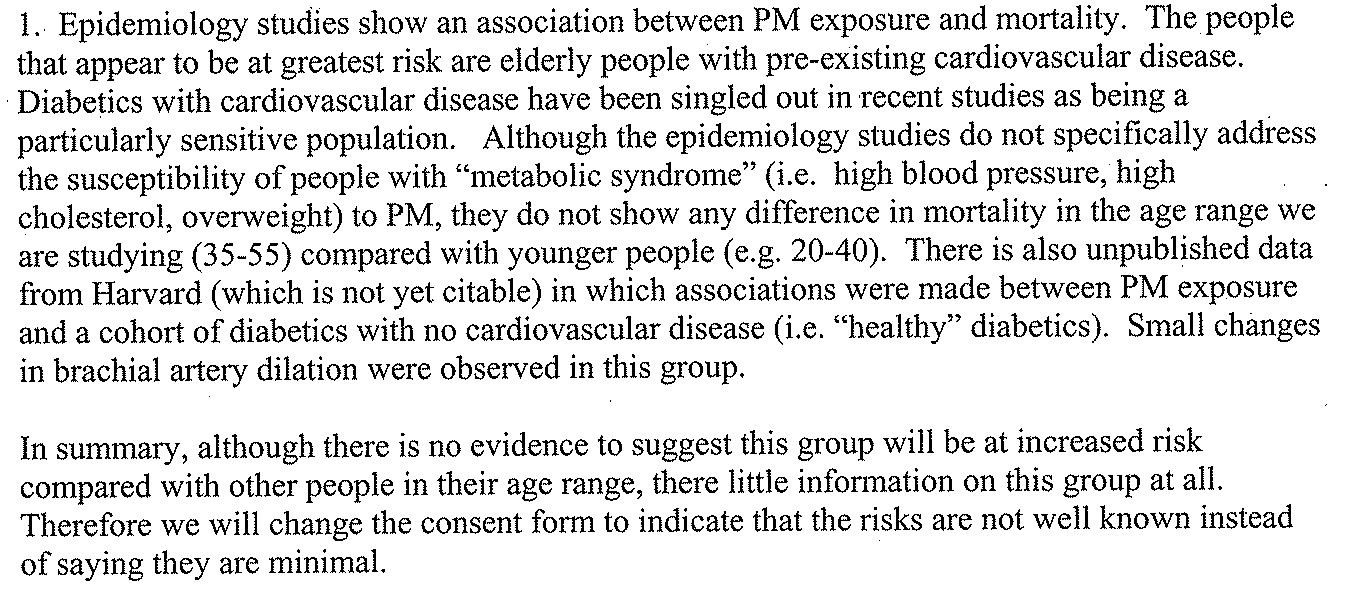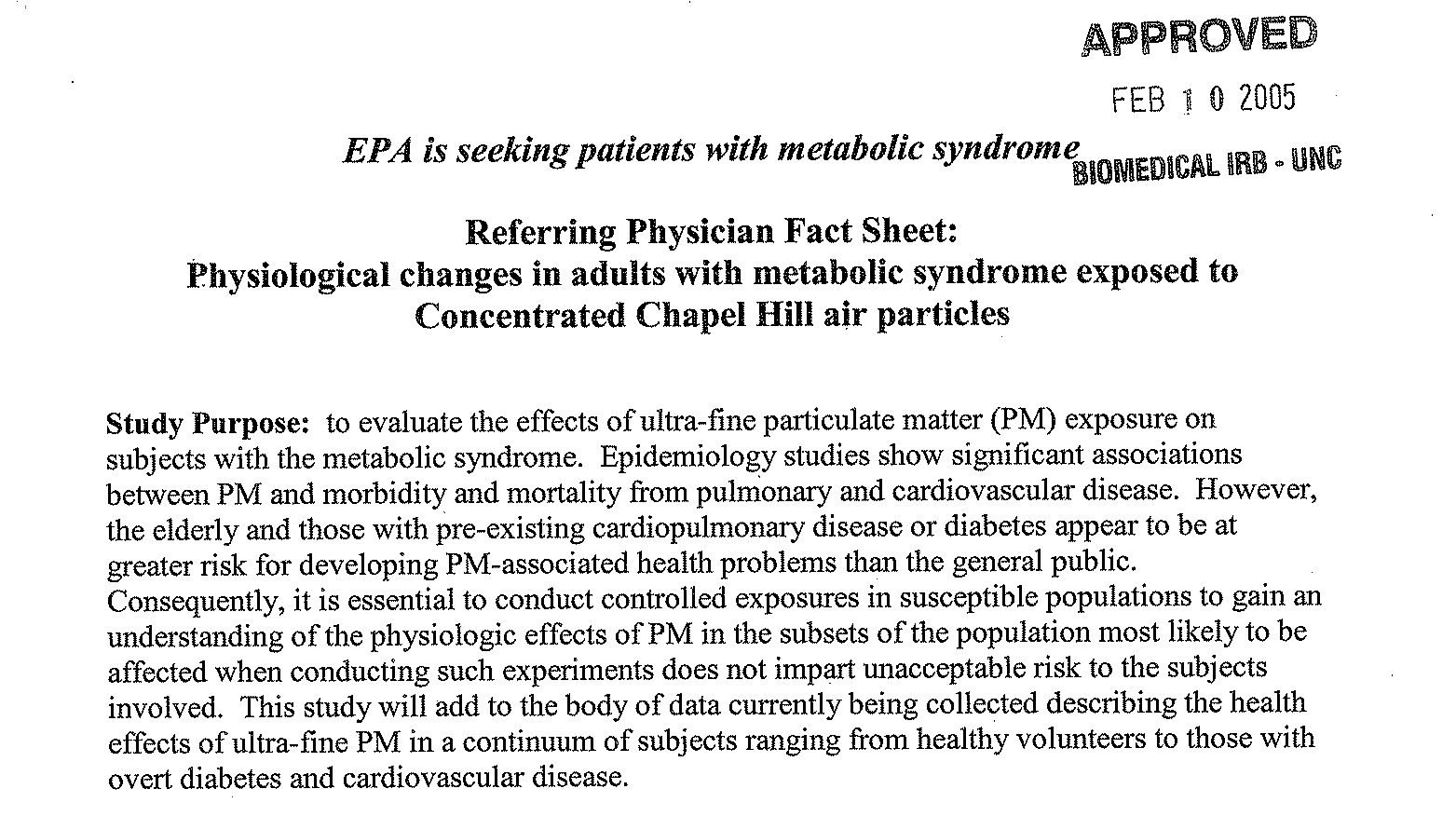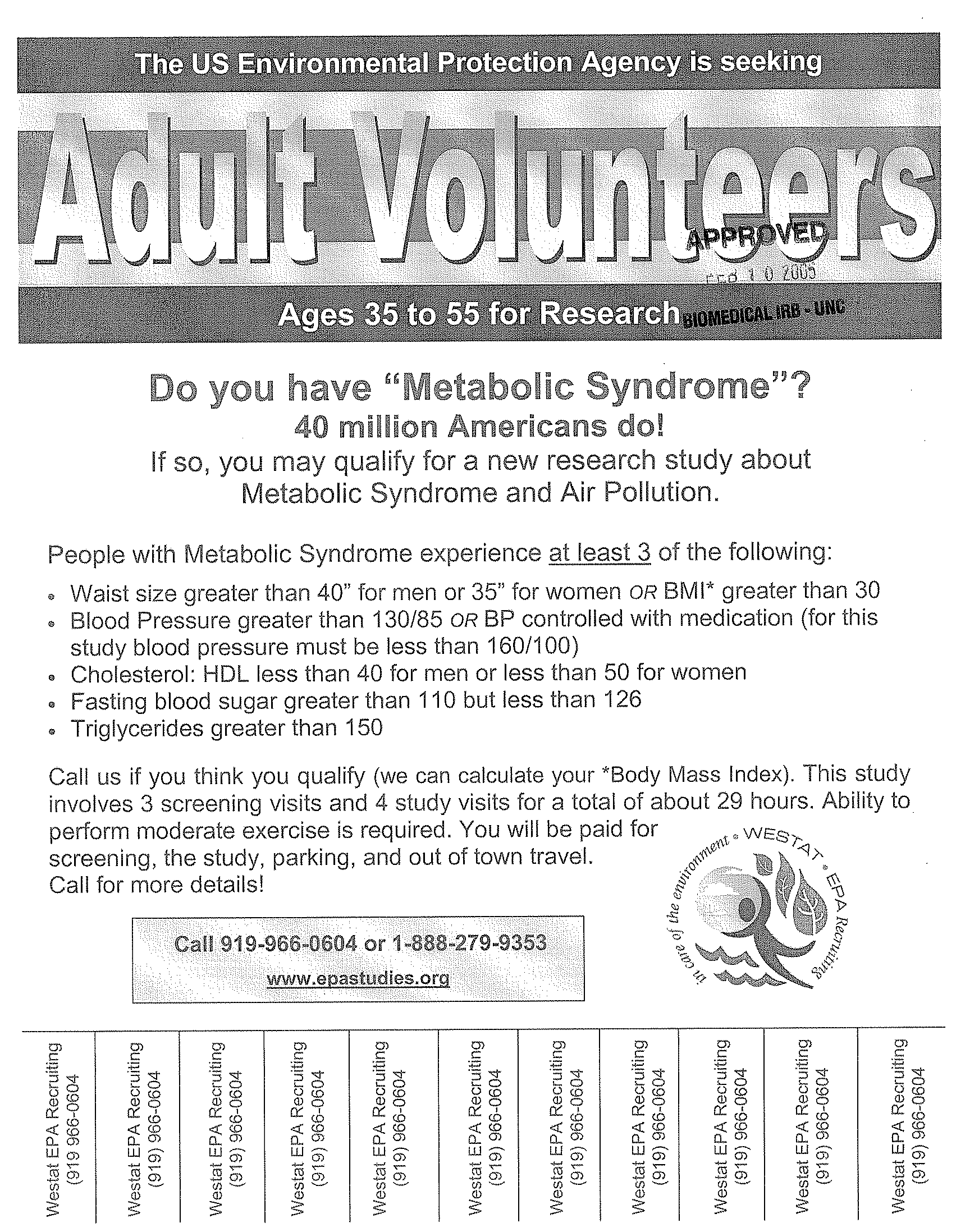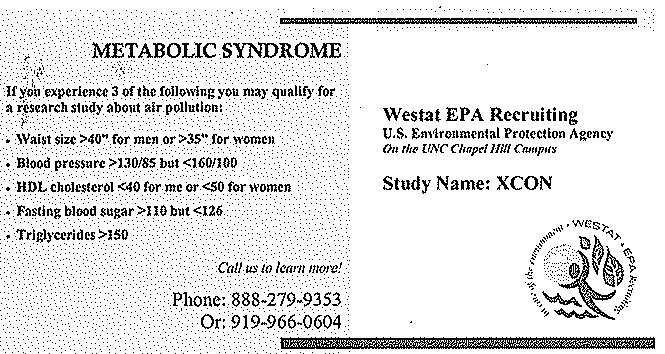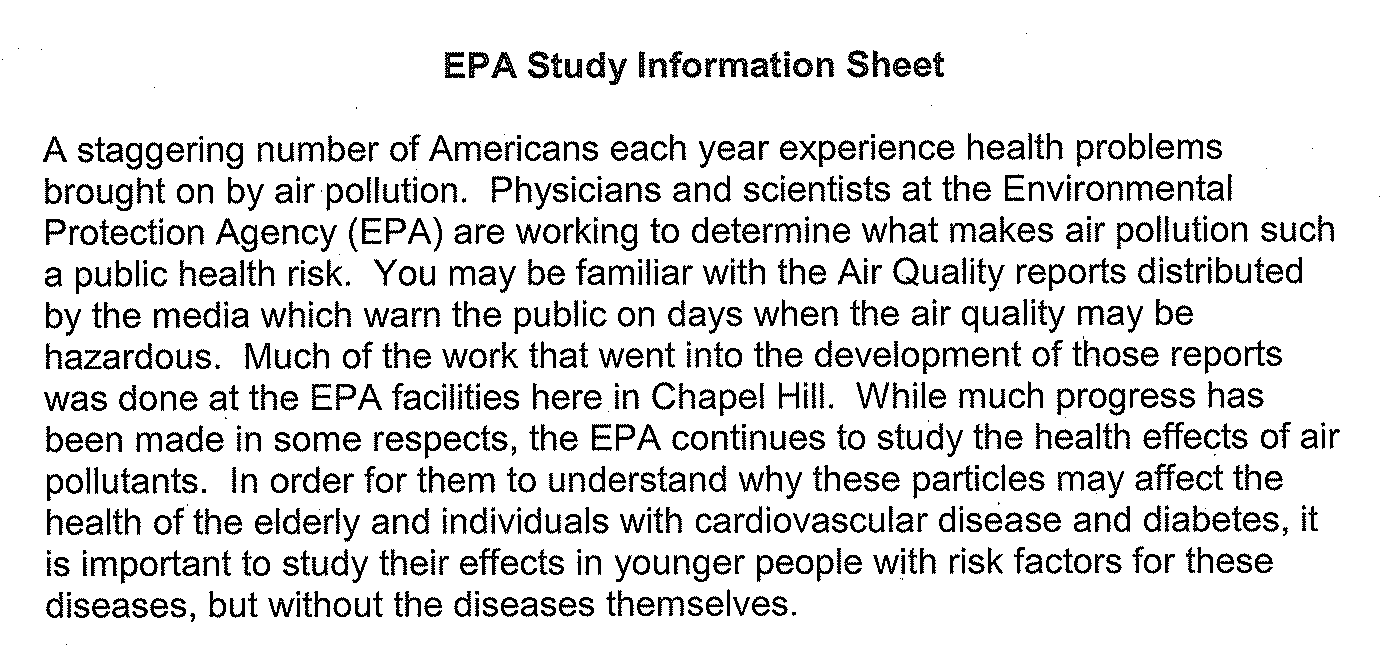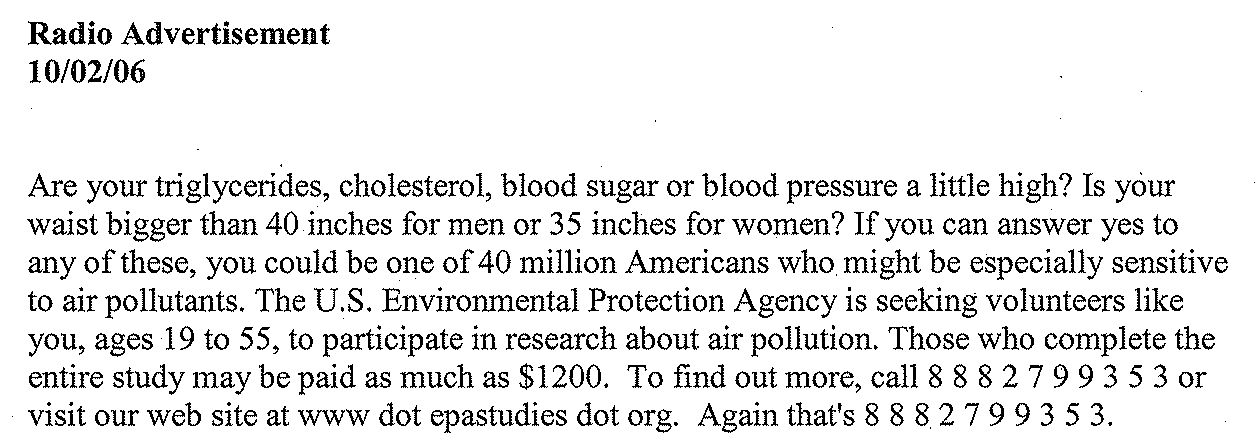So is EPA really treating unhealthy people as guinea pigs for PM2.5 experiments?
The IRB application states:
In an addendum to the 2004 application to test PM2.5 in adults with metabolic syndrome, EPA makes the following curious statement to its UNC IRB:
Dyspnea is shortness of breath.
Compare this statement with what EPA has told the rest of us about PM2.5.
On March 23, 2004, the IRB expressed its concern to the EPA.
Of course, it could be that the EPA researchers just want to do the experiments regardless of facts or lack of them, as demonstrated in this response to the UNC IRB:
But the risk in these experiments doesn’t qualify as “minimal” since they are either unknown or much greater than Chapel Hill residents would normally be exposed.
Here’s what the EPA was telling physicians who might be enticed to refer their patients with metabolic syndrome for guinea pig-ism:
And here’s EPA’s explanation for testing PM2.5 on “unhealthy” subjects:
The “unhealthy” did not need to be referred by a physician — all they needed to do was clip and call.
Other marketing materials advised prospective study subjects to ask for the “XCON” project.
EPA and UNC also combed through UNC billing records to identify possible subjects for testing.
Note how EPA and UNC explain that they didn’t violate the privacy rules of the Health Insurance Portability and Accountability Act of 1996 as follows:
In 2006, the EPA marketed the experiments prospective subjects by letter as follows:
That last bit about “contributing to research that will contribute to improving public health” is a blatant violation of the Common Rule, which states in 42 CFR 26.111(c):
(2) Risks to subjects are reasonable in relation to anticipated benefits, if any, to subjects, and the importance of the knowledge that may reasonably be expected to result. In evaluating risks and benefits, the IRB should consider only those risks and benefits that may result from the research (as distinguished from risks and benefits of therapies subjects would receive even if not participating in the research). The IRB should not consider possible long-range effects of applying knowledge gained in the research (for example, the possible effects of the research on public policy) as among those research risks that fall within the purview of its responsibility. [Emphasis added]
Check out this IRB-approved radio script used by the EPA to recruit patients. Note EPA emphasizes that study subjects could earn $1,200 for participating in the experiment. Apparently, there was not enough time to mention that study subjects would be risking their lives and health, too.



